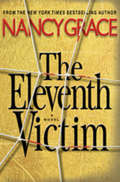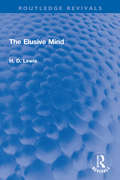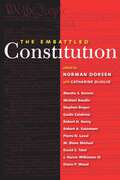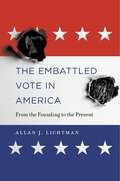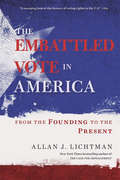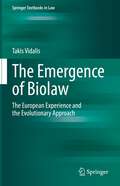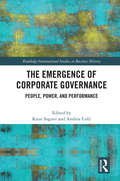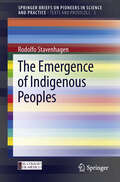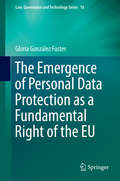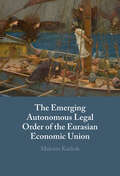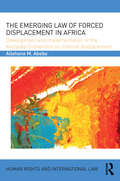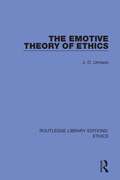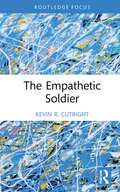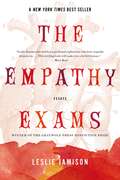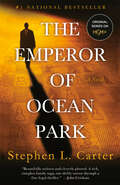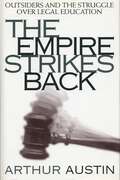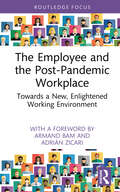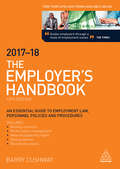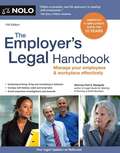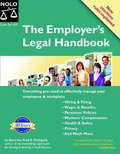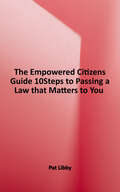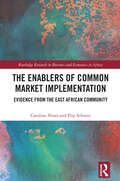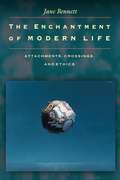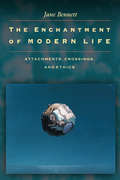- Table View
- List View
The Eleventh Victim
by Nancy GraceThe Eleventh Victim, from former prosecutor Nancy Grace, is a tense thriller depicting a battle of wits between a lawyer, a serial killer, and the NYPD As a young psychology student, Hailey Dean's world explodes when Will, her fiancé, is murdered just weeks before their wedding. Reeling, she fights back the only way she knows how: In court, prosecuting violent crime...putting away the bad guys one rapist, doper, and killer at a time. But dedicating her life to justice takes a toll after years of trials and the endless tide of victims calling out from crime scene photos and autopsy tables. Just as she grows truly weary, a serial killer unlike any other she's encountered begins to stalk the city of Atlanta, targeting young prostitutes, each horrific murder bearing his own unique mark. This courtroom battle will be her last. Hailey heads for Manhattan to pick up the pieces of the life she had before Will's murder, training as a therapist. In a vibrant new world, she finally leaves her ghosts behind. But then her own clients are brutally murdered, one by one, by a copycat using the same M.O. as the Atlanta killer she hunted down years before. Hailey's own DNA is found at the crime scenes. As the body count rises across Manhattan, Hailey is forced to match wits not only with a killer, but with the famed NYPD. Unless she returns to her former life and solves the case, still more innocent people will die at the hands of a killer who plans to get her before she can get him!
The Elusive Mind (Routledge Revivals)
by H. D. LewisFirst published in 1969, The Elusive Mind argues that the mental processes are of a quite different nature from physical ones and belong to an entity which is elusive in the sense that it can only be known, in the first instance, by each person in his own case in the course of having any kind of experience. This ‘elusive’ self is much involved with the body in any conditions we know, but it could also survive the dissolution of the body. The views of thinkers like Ryle, Hampshire, Malcolm, Feigl, and Ayer are subjected to an exceptionally close and critical scrutiny. In presenting these views, the author offers us the substance of the first series of Gifford Lectures he delivered in the University of Edinburgh; and, in what he says on such topics as dreaming; mysticism; and the ‘I-Thou’ relation and on Christian Theology. This book will be an essential read for scholars and researchers of philosophy, philosophy of mind, ethics, and religion.
The Embattled Constitution
by Norman Dorsen"An indispensable and provocative guide through the thicket of today's most challenging constitutional controversies by some of the most eminent judges of their time. It offers an invaluable peek behind the curtain of judicial decision making."—David Cole, Professor of Law, Georgetown University The EmbattledConstitution presents thefourth collection of the James Madison lectures delivered at the NYU School ofLaw, offering thoughtful examinations of an array of topics on civil libertiesby a distinguished group of federal judges, including Justice Stephen Breyer ofthe U.S. Supreme Court. The result is a fascinating look into the minds of thejudges who interpret, apply, and give meaning to our “embattled Constitution.”In these insightfuland incisive essays, the authors bring to bear decades of experience to explorewide-ranging issues. Are today’s public schools racially segregated? To whatextent can the federal courts apply the Bill of Rights without legislativeguidance? And what are the criteria for the highest standards of judging and constitutionalinterpretation? The authors also discuss how and why the Constitution came tobe embattled, shining a spotlight on the current polarization in both theSupreme Court and the American body politic and offering careful and informedanalysis of how to bridge these divides.Contributors includeMarsha S. Berzon, Michael Boudin, Stephen Breyer, Guido Calabresi, Robert H.Henry, Robert Katzmann, Pierre N. Leval, M. Blane Michael, Davis S. Tatel, J.Harvie Wilkinson, III, and Diane P. Wood.
The Embattled Vote in America: From the Founding to the Present
by Allan J. LichtmanAmericans have died for the right to vote. Yet our democratic system guarantees no one, not even citizens, the opportunity to elect a government. Allan Lichtman calls attention to the founders’ greatest error—leaving the franchise to the discretion of individual states—and explains why it has triggered an unending struggle over voting rights.
The Embattled Vote in America: From the Founding to the Present
by Allan J. LichtmanAmericans have died for the right to vote. Yet our democratic system guarantees no one, not even citizens, the opportunity to elect a government. Allan Lichtman calls attention to the founders’ greatest error—leaving the franchise to the discretion of individual states—and explains why it has triggered an unending struggle over voting rights.
The Emergence of Biolaw: The European Experience and the Evolutionary Approach (Springer Textbooks in Law)
by Takis VidalisThis book introduces “biolaw” as an integrated and distinct field in contemporary legal studies. Corresponding to the legal dimension of bioethics, the term “biolaw” is already in use in academic and research activities to denote legal issues emerging mostly from advanced technological applications. This book is a genuine attempt to rationalize the field of biolaw after almost four decades of continuous production of relevant legislation and judgments worldwide. This experience is a robust basis for defending a) a separate legal object, covering the total of legal norms that govern the management of life as a natural phenomenon in all its possible forms, and b) an “evolutionary” approach that opens the discussion on a future conciliation of legal regulation with the Theory of Evolution on the ground of biolaw.
The Emergence of Corporate Governance: People, Power and Performance (Routledge International Studies in Business History)
by Knut SognerCorporate governance is not just about models of best practice organisation or prescriptions following laws or social conventions. Corporate governance is also about persons of power seeking performance, and they do so in ways that transcend structures and pre-conceived notions of the structural set-up of the business. This book emphasises the decision-making dimensions of corporate governance, placing it right in the messy middle of the ever-changing world of capitalism, focussing on the interplay between professional managers and shareholders. This book aims to bring together several fresh perspectives on the development of capitalism seen through the lens of corporate governance. It illustrates the role of intentionality and persons, both as a method with which to understand processes of change, but also as a principle with which to seek a deeper understanding of the corporate governance choices made. It will be of interest to researchers, academics and students in the fields of corporate governance and entrepreneurship, as well as practitioners and other audience interested in the evolution of capitalism and corporate culture.
The Emergence of Indigenous Peoples
by Rodolfo StavenhagenThis is the second part of a trilogy published in the Springer Briefs on Pioneers in Science and Practice on the occasion of the 80th birthday of Rodolfo Stavenhagen, a distinguished Mexican sociologist and professor emeritus of El Colegio de Mexico. Rodolfo Stavenhagen wrote this collection of six essays on The Emergence of Indigenous Peoples between 1965 and 2009. These widely discussed classic texts address: Classes, Colonialism and Acculturation (1965); Indigenous Peoples: An Introduction (2009); The Return of the Native: The Indigenous Challenge in Latin America (2002); Indigenous Peoples in Comparative Perspective (2004); Mexico's Unfinished Symphony: The Zapatista Movement (2000); and Struggle and Resistance: Mexico's Indians in Transition (2006). This volume discusses the emergence of indigenous peoples as new social and political actors at the national and international level. These texts deal with human rights, especially during the years he the author served as United Nations special rapporteur on the rights of indigenous peoples.
The Emergence of Personal Data Protection as a Fundamental Right of the EU
by Gloria González FusterThis book explores the coming into being in European Union (EU) law of the fundamental right to personal data protection. Approaching legal evolution through the lens of law as text, it unearths the steps that led to the emergence of this new right. It throws light on the right's significance, and reveals the intricacies of its relationship with privacy. The right to personal data protection is now officially recognised as an EU fundamental right. As such, it is expected to play a critical role in the future European personal data protection legal landscape, seemingly displacing the right to privacy. This volume is based on the premise that an accurate understanding of the right's emergence is crucial to ensure its correct interpretation and development. Key questions addressed include: How did the new right surface in EU law? How could the EU Charter of Fundamental Rights claim to render 'more visible' an invisible right? And how did EU law allow for the creation of a new right while ensuring consistency with existing legal instruments and case law? The book first investigates the roots of personal data protection, studying the redefinition of privacy in the United States in the 1960s, as well as pioneering developments in European countries and in international organisations. It then analyses the EU's involvement since the 1970s up to the introduction of legislative proposals in 2012. It grants particular attention to changes triggered in law by language and, specifically, by the coexistence of languages and legal systems that determine meaning in EU law. Embracing simultaneously EU law's multilingualism and the challenging notion of the untranslatability of words, this work opens up an inspiring way of understanding legal change. This book will appeal to legal scholars, policy makers, legal practitioners, privacy and personal data protection activists, and philosophers of law, as well as, more generally, anyone interested in how law works.
The Emerging Autonomous Legal Order of the Eurasian Economic Union
by Maksim KarliukIn this original study of the Eurasian Economic Union, Maksim Karliuk assesses the law and dynamics of functioning of this international organization. Examining the Eurasian Economic Union as an attempt to encourage post-Soviet integration, this book addresses the problematic legal issues of the integration process. Using the legal order autonomy framework, Karliuk carefully selects and organizes the topics included to offer readers a clear, systematic account of the most significant concerns. As well as considering theoretical issues, Karliuk engages with practical solutions to the problems identified. Besides merely outlining the present, this book develops a framework to address gaps and failures in current integration efforts and encourages further research into the complexities of Eurasian integration in the future.
The Emerging Law of Forced Displacement in Africa: Development and implementation of the Kampala Convention on internal displacement (Human Rights and International Law)
by Allehone M. AbebeAs of the end of 2015, there were 40.8 civilians who had been internally displaced by conflicts and effects of natural disasters in various parts of the world. Internally displaced persons (IDPs) are currently the largest group of persons receiving assistance from some of the main international humanitarian organisations. With the largest concentration of internally displaced persons (IDPs), the African continent has been the worst affected region. While previously IDPs have largely been neglected under international law, the first-ever continental binding treaty on internal displacement, the African Union Convention on the Protection of and Assistance to Internally Displaced Persons (the Kampala Convention), entered into force on 6 December 2012. As of January 2016, 25 states have ratified the instrument while 40 states have become signatories. This book significantly contributes to the study, policy making and practice on managing internal displacement by presenting the first major systematic examination of the evolution, elements and implementation of the Kampala Convention. It explores the responsibility of the state for the protection of IDPs particularly those who are most vulnerable during armed conflicts, internal strife, natural disasters, human rights violations and other circumstances. The status of ratification of the Convention is reviewed as well as the steps currently being undertaken by governments to implement the Convention. It also analyses the contribution by human rights mechanisms, inter-governmental bodies and UN peace-keeping missions in the implementation of the Convention. The book casts the Kampala Convention in broader institutional and normative developments in Africa and beyond. It demonstrates how concepts such as ‘responsibility to protect’ and ‘sovereignty as responsibility’ have begun to make inroads; influencing some of the more progressive instruments adopted by the African Union. It also sheds light on the relationship between the Convention and some regional instruments. In assessing the effectiveness of the Kampala Convention Allehone Abebe argues that the link between the Convention and initiatives on development, human rights and governance in Africa should be fully fostered.
The Emotive Theory of Ethics
by J. O. UrmsonOriginally published in 1968, this book traces the development of the emotive theory of ethics from its outline by Ogden and Richards in The Meaning of Meaning to the elaborate presentation by Stevenson in Ethics and Language. Attention is paid to the positive features of the ethical theory whilst the author also shows how a more adequate view can be reached through critical reflection on it.
The Empathetic Soldier (War, Conflict and Ethics)
by Kevin R. CutrightThis book shows the contribution that empathy can and should make to the proper conduct of war. US Army doctrine identifies empathy as an essential trait in soldiers; despite this endorsement of senior leaders, empathy’s role in the military profession remains obscure. The notion of soldiers empathetically considering others, especially enemies, strikes many as counter to the nature of soldiering. Additionally, confusion caused by differing definitions of empathy often leads to its complete dismissal. This work clarifies the concept by considering recent philosophical, psychological, and neuroscientific research, and demonstrates the relevance of empathy to the tactical and strategic demands of war. Empathy amplifies soldiers’ understanding of human actors in an operational environment, enables soldiers’ critical and creative thinking, and improves their overall intentions, planning, and assessments of a war’s progress. While empathy can make soldiers more susceptible to the psychic wound of moral injury, it also helps prevent and overcome this injury. Instead of dismissing it, soldiers should assimilate empathy into their moral frameworks. This book will be of much interest to students of the ethics of war, psychology, and military studies generally.
The Empathy Exams: Essays
by Leslie JamisonFrom personal loss to phantom diseases, The Empathy Exams is a bold and brilliant collection, winner of the Graywolf Press Nonfiction PrizeA Publishers Weekly Top Ten Essay Collection of Spring 2014Beginning with her experience as a medical actor who was paid to act out symptoms for medical students to diagnose, Leslie Jamison's visceral and revealing essays ask essential questions about our basic understanding of others: How should we care about each other? How can we feel another's pain, especially when pain can be assumed, distorted, or performed? Is empathy a tool by which to test or even grade each other? By confronting pain—real and imagined, her own and others'—Jamison uncovers a personal and cultural urgency to feel. She draws from her own experiences of illness and bodily injury to engage in an exploration that extends far beyond her life, spanning wide-ranging territory—from poverty tourism to phantom diseases, street violence to reality television, illness to incarceration—in its search for a kind of sight shaped by humility and grace.
The Emperor of Ocean Park (Elm Harbor #1)
by Stephen L. Carter<P>In his triumphant fictional debut, Stephen Carter combines a large-scale, riveting novel of suspense with the saga of a unique family. <P>The Emperor of Ocean Park is set in two privileged worlds: the upper crust African American society of the Eastern seabord--families who summer at Martha's Vineyard--and the inner circle of an Ivy League law school. <P>Talcott Garland is a successful law professor, devoted father, and husband of a beautiful and ambitious woman, whose future desires may threaten the family he holds so dear. <P>When Talcott's father, Judge Oliver Garland, a disgraced former Supreme Court nominee, is found dead under suspicious circumstances, Talcott wonders if he may have been murdered. <P>Guided by the elements of a mysterious puzzle that his father left, Talcott must risk his marriage, his career and even his life in his quest for justice. <P>Superbly written and filled with memorable characters, The Emperor of Ocean Park is both a stunning literary achievement and a grand literary entertainment.
The Empire Strikes Back: Outsiders and the Struggle over Legal Education (Critical America #66)
by Arthur D. AustinOnce dismissed as plodding and superfluous, legal scholarship is increasingly challenging the liberal white male establishment that currently dominates legal education and practice. The most significant development since the emergence of the casebook, at the turn of the century, this trend has unleashed a fierce political struggle. At stake is nothing less than the entire enterprise of law and education, and thus a powerful platform from which to shape society. The result, here vividly recounted by Arthur Austin, has been an uncompromising, take-no-prisoners fight for dominance. The challenge comes from Outsiders, a collection of feminists, critical race theorists, and critical legal studies scholars who rely on unconventional methods such as storytelling to give voice to the underrepresented. In the other, demographically larger camp resides the monolithic Empire, consisting of traditionalists who, having developed an effective form of scholarship, now circle the wagons against the outsider heathens. Neither partisan nor objective, Austin is both respectful and critical of each faction. The Empire, he believes, is imperious, closed-minded, and self-perpetuating; the Outsiders are too often paranoid, anti-pragmatic, and overly tolerant of fringe work. Is the new scholarship a vacuous, overpoliticized, soon-to-be-vanquished trend or the harbinger of an important new paradigm? Is reconciliation possible? Anyone with a vested interest in the answer to these questions, and in the future of law, cannot afford to miss Arthur Austin's invaluable volume.
The Employee Retirement Income Security Act of 1974: A Political History
by James A. WootenThis study of the Employee Retirement Income Security Act of 1974 (ERISA) explains in detail how public officials in the executive branch and Congress overcame strong opposition from business and organized labor to pass landmark legislation regulating employer-sponsored retirement and health plans.
The Employee and the Post-Pandemic Workplace: Towards a New, Enlightened Working Environment (Routledge CoBS Focus on Responsible Business)
by Adrián Zicari and Tom GambleThe UN Sustainable Development Goals, an increasing interest in Environmental, Social and Governance factors, and the unprecedented impact of the COVID-19 pandemic have triggered a massive change in how companies and employees view their relationship, the role and meaning of work, and how to adapt to new environments and ways of working. This book covers a key topic for companies and management practice – that of how to create and foster a committed workforce in a post-pandemic era that has seen a radical change in working environments, approaches and employee understanding of her/his career and work-life balance. In this book, leading researchers and practitioners in the field of CSR, management, leadership, and human resources from the schools and corporate partners of the Council on Business & Society provide the latest focuses on the workplace post-pandemic, effectively managing virtual teams, collective and responsible leadership, and insights into policies and processes enhancing employee commitment and performance. Each insight is accompanied by key takeaways, food for thought and further reading, and later followed by micro-case studies. This accessible book will be a valuable resource for scholars, instructors and upper-level students across leadership and human resource management-related disciplines, enabling them to synthesise the knowledge presented for their own context (professional, academic, personal, wider society, and the planet).
The Employer's Handbook 2017-2018
by Barry CushwayThe Employer's Handbook 2017-18 has established itself as a source of reliable, unambiguous guidance for all small- to medium-sized employers, clearly identifying the legal essentials and best-practice guidelines for effective people management. The book is a comprehensive source of hands-on advice on the increasingly complex legal framework now governing UK employment law, including guidelines on age discrimination legislation and the latest employment tribunal procedures. Coverage includes recruitment, contracts, benefits, performance management, maternity and paternity rights, personnel records and data protection, terminating employment, and ensuring the health, safety and welfare of employees and pension obligations. It also provides access to a unique set of downloadable templates, forms and policy documents for dealing with key employment issues.
The Employer's Legal Handbook (11th Edition)
by Fred S. SteingoldThe Employer's Legal Handbook is the most complete guide to your legal rights and responsibilities as an employer. This essential guide shows you how to comply with the most recent workplace laws and regulations, run a safe and fair workplace, and avoid lawsuits.
The Employer's Legal Handbook (7th edition)
by Fred S. Steingold Amy DelpoUsing minimal jargon, this do-it-yourself guide for employers explains how to comply with workplace laws and regulations and avoid lawsuits. It provides legal guidelines relevant when conducting interviews, writing employee manuals, paying overtime, and terminating employment. It also covers OSHA requirements and laws prohibiting harassment and discrimination. The seventh edition has added chapters on new federal overtime rules and privacy in the workplace. Annotation ©2005 Book News, Inc., Portland, OR (booknews.com)
The Empowered Citizens Guide: 10 Steps to Passing a Law that Matters to You
by Pat LibbyThis book is intended for foundation leaders, nonprofit and social service professionals, committed nonprofit agency volunteers, members of neighborhood associations, and members of the general public who want to understand how to pass a law
The Enablers of Common Market Implementation: Evidence from the East African Community (Routledge Research on African Economics)
by Caroline Ntara Flip SchutteCommon market implementation in Africa could potentially alleviate poverty and grow economies. However, despite numerous trading blocs existing in Africa, challenges persist in common market implementation. This book investigates the enablers which could make an important difference, using the East African Community (EAC) as a case study.Drawing on detailed analysis and extensive original research, this book considers the development of East African regional integration, which aims to foster collective economic advancement via the free movement of goods, people, capital, services, labour, and the rights of residence and establishment. It suggests that there are various enablers to integration which are often underutilised, such as funding models, public participation, regional decision-making models, anticorruption initiatives, common market laws, automated processes, sanction mechanisms, and research and information symmetry. The book argues that correctly harnessing these enablers would have a transformative impact both on the EAC and on other trading blocs in Africa, such as the SADC, ECOWAS, COMESA, and AfCFTA.This book will be an important read for researchers and practitioners in international trade, regional integration, African development, and economics.
The Enchantment of Modern Life: Attachments, Crossings, and Ethics
by Jane BennettIt is a commonplace that the modern world cannot be experienced as enchanted--that the very concept of enchantment belongs to past ages of superstition. Jane Bennett challenges that view. She seeks to rehabilitate enchantment, showing not only how it is still possible to experience genuine wonder, but how such experience is crucial to motivating ethical behavior. A creative blend of political theory, philosophy, and literary studies, this book is a powerful and innovative contribution to an emerging interdisciplinary conversation about the deep connections between ethics, aesthetics, and politics. As Bennett describes it, enchantment is a sense of openness to the unusual, the captivating, and the disturbing in everyday life. She guides us through a wide and often surprising range of sources of enchantment, showing that we can still find enchantment in nature, for example, but also in such unexpected places as modern technology, advertising, and even bureaucracy. She then explains how everyday moments of enchantment can be cultivated to build an ethics of generosity, stimulating the emotional energy and honing the perceptual refinement necessary to follow moral codes. Throughout, Bennett draws on thinkers and writers as diverse as Kant, Schiller, Thoreau, Kafka, Marx, Weber, Adorno, and Deleuze. With its range and daring, The Enchantment of Modern Life is a provocative challenge to the centuries-old ''narrative of disenchantment,'' one that presents a new ''alter-tale'' that discloses our profound attachment to the human and nonhuman world.
The Enchantment of Modern Life: Attachments, Crossings, and Ethics
by Jane BennettIt is a commonplace that the modern world cannot be experienced as enchanted--that the very concept of enchantment belongs to past ages of superstition. Jane Bennett challenges that view. She seeks to rehabilitate enchantment, showing not only how it is still possible to experience genuine wonder, but how such experience is crucial to motivating ethical behavior. A creative blend of political theory, philosophy, and literary studies, this book is a powerful and innovative contribution to an emerging interdisciplinary conversation about the deep connections between ethics, aesthetics, and politics. As Bennett describes it, enchantment is a sense of openness to the unusual, the captivating, and the disturbing in everyday life. She guides us through a wide and often surprising range of sources of enchantment, showing that we can still find enchantment in nature, for example, but also in such unexpected places as modern technology, advertising, and even bureaucracy. She then explains how everyday moments of enchantment can be cultivated to build an ethics of generosity, stimulating the emotional energy and honing the perceptual refinement necessary to follow moral codes. Throughout, Bennett draws on thinkers and writers as diverse as Kant, Schiller, Thoreau, Kafka, Marx, Weber, Adorno, and Deleuze. With its range and daring, The Enchantment of Modern Life is a provocative challenge to the centuries-old ''narrative of disenchantment,'' one that presents a new ''alter-tale'' that discloses our profound attachment to the human and nonhuman world.
